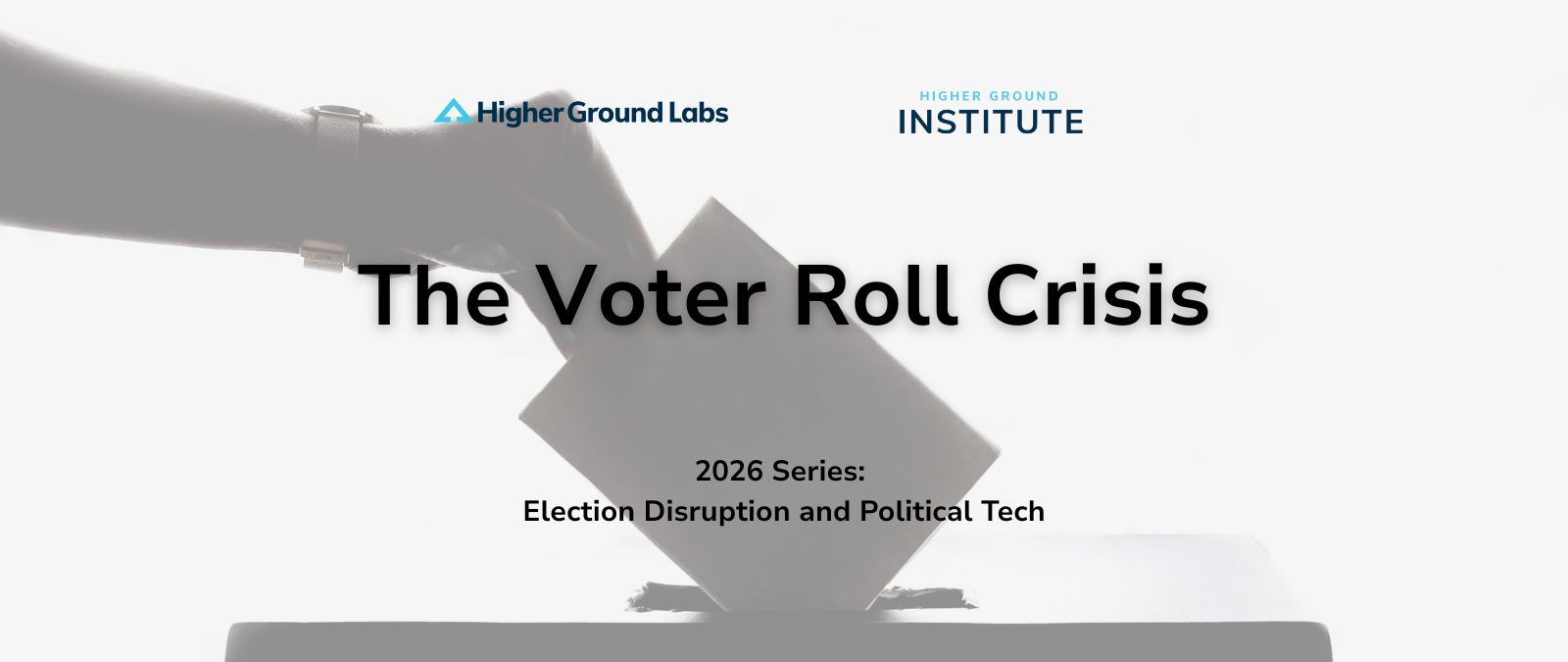There has been an explosion of new ideas, startups, and outside groups in-and-around the Democratic Party over the past two years. Higher Ground Labs has helped focused, disciplined founders begin to build profitable, high-impact companies that are now saving thousands of campaigns time and money. I’m as ecstatic about the surge of innovation and entrepreneurship as I am anxious over our collective ability to endure and sustain ourselves cycle-over-cycle.
We believe that for-profit startups can serve as a cornerstone of progressive technology and innovation. Over the past two years, we have diligenced hundreds of start-ups and led investments into 40 companies. Many of them were central to our success in ’18 and will press advantages in ’20. We know that critical Democratic tech infrastructure must be reliable, stable, and grow stronger every year. I thought it might be useful to lay out our experiences and observations over what we think makes for lasting, stable businesses in politics.
Be in this work for the mission, not the opportunity
I recently heard a great founder say “success isn’t guaranteed, but failure is certain if you aren’t truly emotionally invested in your work.” That is even more true in political tech than most markets. Our most successful founders are inspired first by their political mission and second by the potential for upside. Founders that are committed serving campaigns and causes will fare better than aspiring tech entrepreneurs that see politics as a validating market of first-entry. The ‘movement’ founder will hire better, sell better, and raise more convincingly.
Don’t be a solution in search of a problem
Before launching something new, make sure the problem you’re solving is real and pressing. The best startups are built on deep customer discovery, not anecdotal pain experienced on a single campaign or volunteer experience. Use available resources like our landscape analysis, accelerator programing, and consult with other great outside groups like New Media Ventures and The Movement Cooperative.
Raise and operate with discipline
Strive to raise the minimum capital necessary at practical valuations rather than the maximum capital available at aspirational valuations. Impact investors are along for the mission, but don’t use their generosity as a grab-bag. It can haunt you later. Your mission is to race to profitability with as little outside funding as possible. Focus early on your unit economics and strive to get to break-even at break-neck speed. This will help preserve long-run ownership of your company and help you reliably raise future rounds of funding when you need them. Ignore the myopic benchmark valuations in the rest of tech. Politics is a unique market with unique characteristics. Our Total Addressable Market is lower. Our natural churn is higher. Raising large rounds and setting impractically high valuations at the outset will force premature entry into new, untested markets outside of politics in order to justify future fundraising rounds and valuations. Stay lean.
Death to Unicorns: Shun Venture Capital
Don’t waste time with VCs, especially early on. Traditional venture capitalists seek investments that have the potential to return their entire fund. This means they rely on a small subset of their companies to do very well in order to compensate for most of their portfolio going to zero. These ‘power laws’ create pressure to grow quickly and at all costs – even if you must sustain large losses to do so. This dynamic is often subsidized and extended through larger, ongoing funding rounds. Money is historically cheap right now and this model can work to realize dominance over large markets. But we know this is not the case in politics. VCs view politics with healthy skepticism – they will not reward your reliable political revenue as recurring revenue and will push you to focus on other markets outside of politics. See Point #1 on mission over opportunity.
Don’t Go Chasing Waterfalls
Our best mission-focused founders often build technology platforms that lend themselves naturally to markets outside of politics. We encourage this exploration, but advise that new markets be tested with cautious expedition to establish product-market-fit, not through ambitious rounds of fundraising at valuations dependent on future success.



